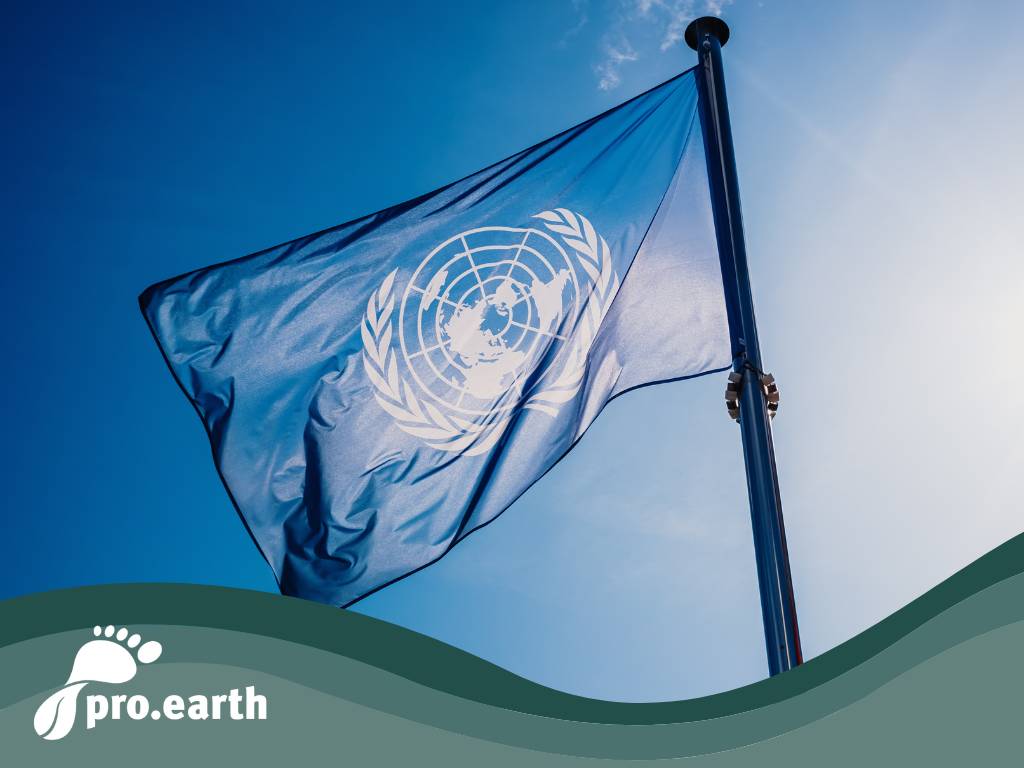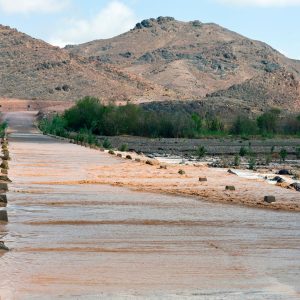When the goat becomes the gardener

COP28, the global climate conference, will take place in the United Arab Emirates at the end of 2023. The important, trend-setting preliminary negotiations are currently underway in Bonn. Scandalously, the CEO of Abu Dhabi's state-owned oil company (currently the 12th largest oil company in the world) has been appointed President of COP28. In his role as CEO, he has announced that the oil company will increase its oil production by 7.6 million barrels in the coming years. How fitting in times like these!
The GUARDIAN has uncovered that Abu Dhabi's state oil company was reading emails to the COP28 presidency and writes: "Al Jaber's dual role has drawn fierce criticism, including from former UN climate chief Christiana Figueres, who described his approach as "dangerous"." It is scandalous and puts the negotiations under massive pressure from the fossil fuel lobby to maintain oil production for as long as possible and thus counteracts the global climate movements to phase out asap.
French MEP Manon Aubry commented on his role: "This is an absolute scandal. An oil and gas company has invaded the heart of the organization responsible for coordinating the phase-out of oil and gas production. It's like a multinational tobacco company overseeing the internal work of the World Health Organization." We won't find a better comparison!
This is why more than 130 political representatives from Europe and the USA called for Al Jaber to be removed as COP28 President in an open letter to President Biden, EU Council President Van der Leyen and UN Secretary-General Guterres back in May. The letter states that this presidency could undermine the negotiations and warns of the potential influence of the oil industry on the climate conference negotiations.
The preliminary negotiations in Bonn
During the two-week negotiations in Bonn, delegates from all over the world will come together for discussions and presentations in order to identify the most pressing problems and prepare decisions. David Ryfisch, Head of International Climate Policy at the environment and development organization Germanwatch, sees two main sticking points:
"Everything indicates that the United Arab Emirates, as the upcoming presidency of the World Climate Conference, will try to massively advance its agenda to extend the age of oil and gas. At the same time, the last climate summit was already characterized for a long time by a division between the Global North and South, which we cannot afford. We need an alliance of progressive states to lay the foundations in Bonn for a world climate conference in which false promises to extend fossil fuel production do not prevail."
"We need a rapid and just phase-out of fossil fuels to avoid the worst damage and losses, to end the conflict of interest at climate conferences," writes the climate delegation on Instagram - click here for the accompanying reel, which is well worth seeing and hearing.
Global stocktake for the first time
This time, the focus is on the first-ever global stocktake, which is intended to review where the world stands in terms of climate protection. "The global stocktake is at the heart of the Paris Agreement. It is important not only to look back, but also to formulate clear recommendations for the way forward to achieve the goals," explained Kerstin Opfer, Energy Policy and Civil Society Officer at Germanwatch.
"For many people around the world, it is a matter of survival that we limit the warming of our planet to 1.5 degrees," said UN climate chief Simon Stiell in Bonn. The global stocktaking offers the opportunity to tackle the important changes with renewed vigor and a clear perspective.
Our pro.earth. conclusion: We take a rather pessimistic view of the negotiations, as there is a lack of appropriate action to achieve the Paris 1.5 degree target. It is clear that the global North will have to pay much more than the estimated USD 100 million per year to the countries of the South and not even this amount has been reached in recent years. How are we supposed to manage the fossil fuel phase-out under the above-mentioned conditions?






